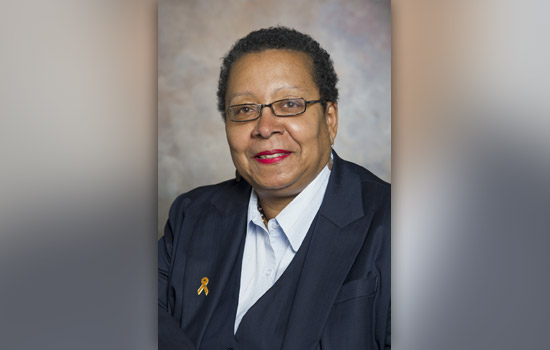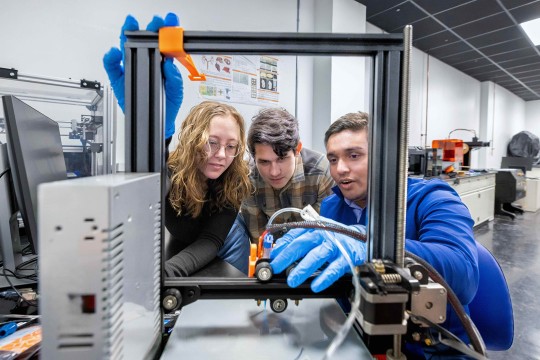Global Maturity
ViewpointBy dt ogilvie
dt ogilvie
I firmly believe that no business student can call herself educated if she doesn’t have some firsthand exposure to doing business in another country. Let me rush to add that living in, spending a year or semester abroad, or even a co-op abroad is not the same thing. As an example, how many of you have friends and relatives born right here in the U.S. who don't have a clue about business and how it is done?
Several experiences really drove this home for me. One was years ago when Upjohn and Pharmacia merged. I used the Wall Street Journal article on the problems faced by this merger as a case study for my students. One of the most compelling mistakes happened early in this “merger of equals” when the U.S. entity, Upjohn, scheduled important meetings in August. I can hear some of you chuckling. Pharmacia was a Swedish and Italian company. When do the Italians take vacation? In August! And, how long is their vacation? Typically a month! This was no secret, by the way, and Italy was not unusual in this respect.
This gaffe points to the underlying basis for a series of poor decisions made by Upjohn — lack of knowledge of cultural differences and business practices of doing business in another country. It wasn’t until Fred Hassan, who had extensive global business experience, was appointed as CEO that the merger began to realize its promise, unleashed a slate of new drugs and became profitable.
Another experience occurred in Thailand when I was a doctoral student at The University of Austin at Texas. I put together the itinerary and co-taught a course called Doing Business in Asia. We were visiting a factory that made luxury goods for the U.S. market. The owner graciously offered the students the opportunity to shop in the company store, which meant they could get these luxury goods for a few baht, i.e., pennies on the dollar. My co-leader was so frustrated with the Thai sense of time, based on the philosophy of mai pen rai, in which for a meeting set at 10 a.m., a Thai might not show up until 11 a.m. or even later, that he lost it (saying some unfortunate things to our host) and refused to let the students take advantage of the offer.
When I taught Doing Business in China at Rutgers, I had a student who worked for Continental Airlines and who regularly traveled to China to shop. After taking my class, this is what she said:
I attended the Doing Business in China class and am now a huge proponent of the thought that a study abroad program is invaluable in today’s global market. Travel and study abroad are not the same thing. I have traveled for leisure to over 50 countries, one of which is China... There is a distinct difference and opportunity when one is able to meet with business people, government officials, visit plants and businesses and see firsthand what really is the situation in a particular location. The first time I traveled to China, I really did not notice the state of affairs and things that, after a little direction from the professor, were blindingly clear. This knowledge is great power.
I also find that I now can apply what I learned on that trip to practically every aspect of my life and definitely to all of my other classes.
Because of their exposure to doing business in another country, my students won’t make the mistakes of Upjohn and Pharmacia, or Walmart in Germany, or the countless other well-known firms that failed when they thought they could just plunk down they way they do business here in the U.S. in any country they entered. When we went to Chile, for instance, we heard about companies that didn’t pay attention to accounting rules and the tax laws. As crazy as that sounds, these were reputable firms.
It is also interesting to see students starting to realize that other countries may be far ahead of the U.S. in some areas. For instance, they were talking about high-speed trains here in the U.S. when I was a student, but we have yet to have one here. If you’ve ever been on a high-speed train in Japan or China, you know that the Acela doesn’t really measure up. Other countries, like Costa Rica and Australia, are paying much more attention to greening, conservation and sustainability. China has ubiquitous solar water heaters for apartments. Many countries have split air conditioning/heating units. From shutters, lock systems, windows features, amenities like a seat in an elevator in Prague, to in-seat USB plugs, power, coat and cup holders on non-U.S. airplanes (I'm talking coach, not business or first class!), to many other products, the world is replete with great ideas that have not seen the light of day here in the U.S.
If you pay attention to these things, you realize that we are not the sole repository of people who are creative and inventive and that influences how you think about and interact with people in their country. One is much more likely to be successful in doing business if one does not have the hubris that characterizes some people when they deal with folks from other countries.
Probably one of the most important aspects to realize when dealing with business people in a country one wants to do business with is realizing how important establishing a personal relationship is, not just in China, but in Chile and a host of other countries.
I think it becomes clear that what I am saying doesn’t just apply to business students, it applies to all students in this global world in which they, in particular, live. And, it applies to business people and to our politicians. I sometimes think these folks travel abroad encased in an American bubble, oblivious to the culture, business practices, and products and services of those countries they visit. On my trips, I typically had some business people (including someone on the business school board of advisors on two occasions), accompany us on these doing business in another country trips. They learned as much as the students did.
Like my students, a thoughtful person might find it strange, for instance, that China has high-speed rails and we do not. They might wonder why our airports pale in comparison to those in other countries like Amsterdam, Beijing and Shanghai, as my students asserted. One might wonder if we had concentrated on building and rebuilding our infrastructure, putting displaced auto workers to work building trains, less skilled workers to work laying rails, where would our economy be now?
But I digress, that is the topic for a future column. The point I hope to make here is that students and business people, in particular, need to expand their horizons and learn about doing business in at least one other country (but more is better). My students who took Doing Business in Southeast Asia learned that even in a region thought to be similar, there were vastly different practices, laws, philosophies and ethical behaviors among those countries.
If you are planning to do business abroad, having a student who has studied doing business in another country on your team will put you ahead of the pack and up your chances for success. One of my former students was tapped by his company to open up branches for them in other countries — and they did it right because of his knowledge.
Global maturity is a skill that will be requisite in the near future in many companies and many industries. If you don’t have this skill, now is the time to start developing it. It will do you good.
dt ogilvie is dean of the E. Philip Saunders College of Business. “Viewpoints” presents insight and opinions on issues of relevance to RIT or higher education generally. To suggest a topic for a future essay, contact news&events@mail.rit.edu.
This article was printed in the Rochester Business Journal on March 8, 2013.












